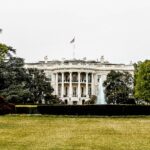America in the World
There has been an increase in American politics of neo-isolationists for some time now. Although these neo-isolationists are curious in their attitudes toward the United States, as Antonio García Martínez explained, their main belief about American power and presence in the world is that the United States is incapable of doing good in the world, and historically has been a force for evil worldwide. Moreover, some on the Right believe that that evil is a result of exporting progressivism (and, to some, democracy) to the world, which allegedly fuels social decline. As such, American hegemony benefits neither the world nor America.
This view makes three mistakes. First, it assumes that all forms of government are morally neutral. Second, it believes that America has contributed nothing beneficial to world history. And third, since America is not more moral than other systems, nor does it do any good, it should totally retreat from the world and tend only to its matters.
To have clear thinking, it’s crucial to define concepts. As such, any proper rebuttal of the relativism of our age must begin by answering the charge that democracy is, at best, just one form of government among many and, at worst, a decadent system. The basic notion of a good system of government is that it respects and protects individual human rights. During the long course of human history, experience has shown us that those fundamental rights are things such as life, freedom of speech, assembly, private property, etc. These natural rights have been historically protected in systems based on the consent of the governed, with separation of powers, a due process of law, and an independent judiciary. Thanks to these concepts, the West, especially amongst English speakers, succeeded in the competition among many different systems. If a system does not respect those fundamental human rights and cannot remedy the injustices within it, it is an immoral system. Since America concurs with those moral requisites, it is undoubtedly, despite its faults, a morally good nation.
Moreover, what a nation does with its power internationally determines if it is a force for good. America, as a great power, defeated Wilhelmine and Nazi Germany and the Soviet Union; it perpetuated the self-determination of peoples and the founding of sovereign nation-states (something that nationalists, I suppose, would consider good), rebuilt Europe through the Marshall Plan, established freedom of the seas through naval power, free trade and, through American military power and NATO, it has kept the peace among the Great Powers for more than half a century. That stability, a product of American Imperialism, has helped both the United States and the world by, for example, drastically reducing reducing world poverty and keeping the peace. If that is a bad record, critics of American hegemony should give us a better alternative.
What would neo-isolationism mean? We hear a lot about the uselessness of international law, and I concur. International law and the mostly peaceful, integrated free world we know is a carefully constructed thing. It is maintained only by American power. If America declines or isolates itself from the world, then the world will become a more dangerous place with increased piracy, less trade, and more conventional military conflicts. It will also probably be remade in the image of the next hegemon. If Chinese Communism seems a better way of life to anyone, then the Free World may have truly gone mad.
The present world was built by learning from the mistakes of two world wars. It is, I think, a much better way to live than the alternative. Nonetheless, the neo-isolationists, or “realists,” correctly warn against military adventurism. The poorly named “realism” of our times grew out of the excesses of the post-Cold War order, especially the Iraq War, and the failures of nation-building. Regardless of the debate on those interventions, the neo-isolationist critiques have merit and should be answered. How should the United States effectively conduct foreign policy in this new era?
The most important thing for preserving freedom is deterrence; as President Reagan used to say, “war comes not when the forces of freedom are strong, but when they are weak. It is then that tyrants are tempted.” Therefore, the United States needs to maintain military superiority, increase defense spending, and develop new technologies. It is also incumbent on us to revive the two-front war strategy. Furthermore, the Free World must band together to deter Russia and China, which entails two things. First, we must strengthen NATO, and to ensure that Russia pays a heavy price for its aggressive war on Ukraine, we should allow Finland and Sweden to join the alliance and any other nation that so wishes. It is also necessary to revive the Southeast Asia Treaty Organization (SEATO), or an equivalent, among the Pacific and Asian democracies. Lastly, learning from our errors, the United States should only intervene directly when its interests are directly threatened and/or can use overwhelming force; other times, proxies might be sufficient. Likewise, it must be understood that regime change is not always ideal; and in most cases, should be avoided.
In short, the democratic way, for all its faults, is a more moral way. As a result, the American-led world order produced a better world, and the world’s democracies should remain together in a defensive alliance against the resurgence of two evil empires. We are engaged now in a Second Cold War, regardless of our wishes. In the end, it is not that we must go abroad seeking dragons to slay; it is that we must not forget that sometimes the dragons seek us.




